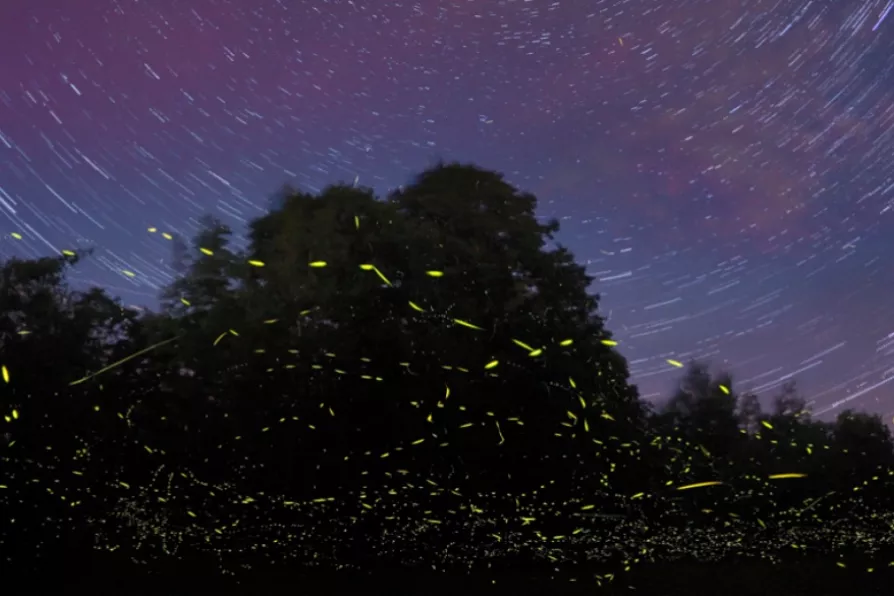SIMON PARSONS applauds an original, visual and movement-based take on the birth and death of a relationship
Lyrical search for meaning in an unknowable world

 Fireflies and Star Trails
[Mike Lewinski]
Fireflies and Star Trails
[Mike Lewinski]
Fireflies
by Luis Sagasti
(Charco Press, £8.99)
“THE WORLD is a ball of wool. A skein of yarn you can’t find the end of.” That's how Luis Sagasti's ambitious novel Fireflies, a quest to find meaning in literature and life, begins.
Retelling a fantastical history of the world, the book, translated by Fionn Petch, is written in a highly lyrical form and it's refreshingly experimental in its structure as it weaves through stories and anecdotes of the famous and the infamous.
Similar stories

Ben Cowles speaks with IAN ‘TREE’ ROBINSON and ANDY DAVIES, two of the string pullers behind the Manchester Punk Festival, ahead of its 10th year show later this month

JESSICA WIDNER explores how the twin themes of violence and love run through the novels of South Korean Nobel prize-winner Han Kang

In an exhibition of the graphic art of Lorna Miller, MATT KERR takes a lungful of the oxygen of dissent

ANDY HEDGECOCK relishes two exhibitions that blur the boundaries between art and community engagement










